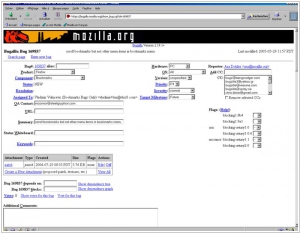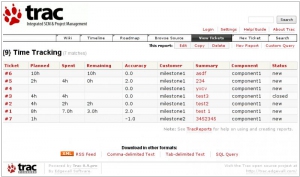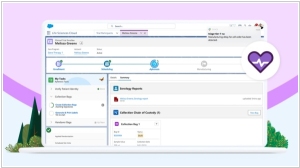Bugzilla vs Trac
May 19, 2023 | Author: Michael Stromann
10

Bugzilla is server software designed to help you manage software development. Bugzilla is a "Defect Tracking System" or "Bug-Tracking System". Defect Tracking Systems allow individual or groups of developers to keep track of outstanding bugs in their product effectively. Most alternative defect-tracking software vendors charge enormous licensing fees. Despite being "free", Bugzilla has many features its expensive counterparts lack. Consequently, Bugzilla has quickly become a favorite of thousands of organizations across the globe.
7

Trac is an alternative wiki and issue tracking system for software development projects. Trac uses a minimalistic approach to web-based software project management. Our mission is to help developers write great software while staying out of the way. Trac should impose as little as possible on a team's established development process and policies.
Bugzilla and Trac are both popular open-source issue tracking systems, but they have distinct features and approaches to managing software defects and issues. Bugzilla is a mature and feature-rich bug tracking tool that offers comprehensive functionalities for managing software defects. It provides features like bug reporting, tracking, customizable workflows, and advanced search capabilities. Bugzilla is known for its scalability, flexibility, and extensive customization options, making it suitable for large development teams and projects with complex requirements. Trac, on the other hand, is a lightweight issue tracking system that integrates issue tracking with version control and project management. It offers features like bug tracking, wiki documentation, and a simple web interface. Trac is known for its simplicity and ease of use, making it suitable for smaller teams or projects with straightforward issue tracking needs.
See also: Top 10 Issue Trackers
See also: Top 10 Issue Trackers
Bugzilla vs Trac in our news:
2011. Bugzilla 4.0 improves duplicate detection, custom fields and search
The latest version of the widely-used bug-tracker, Bugzilla 4.0, has been officially released. Since Bugzilla 3.0, significant redesigns have been implemented across almost every major user interface, resulting in a vastly improved experience. Additionally, the WebServices have undergone significant advancements, and an impressive Extensions system has been introduced, accompanied by numerous other new features. Bugzilla 4.0 introduces more than just enhanced WebService and UI functionality. Exciting additions include automatic duplicate detection, improved custom field capabilities, autocomplete functionality for user inputs, and search enhancements. Furthermore, the update brings forth a new attachment details user interface, general usability improvements, a revamped default status workflow, improved "Last Search" functionality that remembers multiple searches, cross-domain WebServices with JSONP support, mandatory custom fields, the transformation of voting into an extension, automatic provision of new CSS and Javascript to users, an array of new hooks, and a new Apache configuration.
2006. Trac - web-based project management with wiki + bug-tracker + svn code browser

Trac emerges as a fresh contender in the realm of issue tracking tools, offering a delightful web-based project management solution developed in Python. One of its key strengths lies in its seamless integration with existing Subversion repositories. With Trac, you can conveniently browse the code within your repositories, complete with syntax highlighting, and effortlessly view differences between revisions. Notably, Trac goes beyond version control integration and extends its capabilities to include a wiki feature for project documentation. Moreover, it incorporates a built-in bug tracker reminiscent of Bugzilla, resulting in a comprehensive, all-in-one software solution. It's important to note that Trac is Free Software, and although its license recently transitioned from GPL to the revised BSD license, it continues to uphold its open-source principles. To enhance Trac's functionality, you can explore a wide array of useful plugins and macros available at trac-hacks.org. These include noteworthy additions such as DoxygenPlugin, GanttPlugin, DebianBtsMacro, and many others, enabling you to tailor Trac to your specific needs and requirements. Discover the power and versatility of Trac for effective project management and issue tracking.


